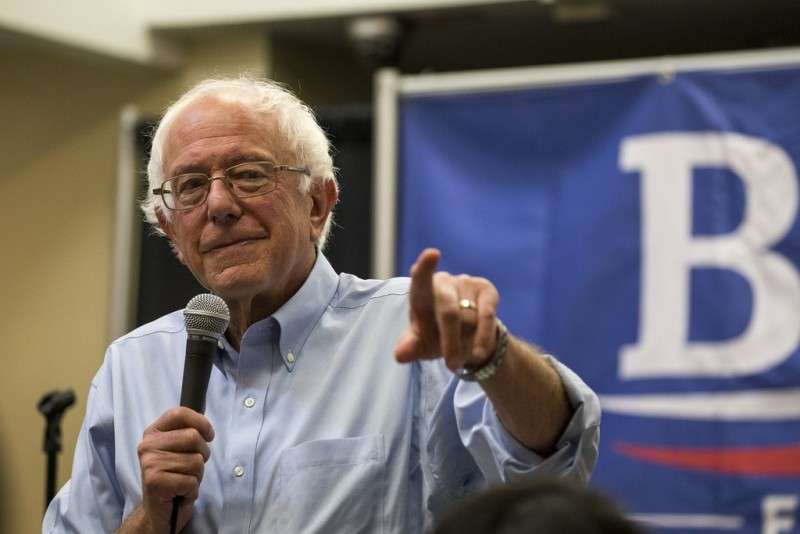Medicaid for All Would 'Bankrupt the Nation,' Warns Bernie Sanders—In 1987
Thirty years ago, the young Sanders thought the cost of universal coverage would be "astronomical."

Sen. Bernie Sanders (I-Vt.) introduced new legislation yesterday to expand Medicare to everyone in the United States. The bill, which came with 15 Democratic co-sponsors, envisions universal coverage, paid for by tax increases, that would be far more generous than what is offered by any other first-world government-run health care system offers.
Notably absent from Sanders' proposed single-payer system was a detailed plan to pay for it. The senator said he would lay out the tax hikes necessary to fund his new system in separate legislation.
That may be because enthusiasm for single payer tends to die down pretty quickly once people get a sense of what sort of tax increases would be necessary to fund it. An Urban Institute analysis of a previous version of Sanders' plan estimated that it would cost $32 trillion over a decade.
Back in 1987, a much younger Bernie Sanders apparently had that sense too. He warned that expanding Medicaid, the jointly run federal-state health care program for the poor and disabled, to everyone in the country would "bankrupt the nation."
"If we expanded Medicaid [to] everybody. Give everybody a Medicaid card—we would be spending such an astronomical sum of money that, you know, we would bankrupt the nation."
Watch the video, unearthed by NTK Network:
Medicaid, notably, is far less generous than Medicare, the health program for seniors that Sanders wants to expand.
Medicaid's provider networks are narrower, and its benefits are generally more limited. It pays doctors quite a bit less than Medicare, on average, and it costs substantially less per capita. Relative to Medicare, it's the bargain option.
This is a short clip, and the full version may reveal additional relevant context. But what Sanders is describing in the segment above is the comparatively high cost of health care services in the United States relative to countries like Canada. As the clip ends, Dr. Milton Terris begins to discuss the ways in which other countries limit extra charges and use the power of government monopoly to force down prices.
Forcing health care spending down to the levels seen in other countries would radically upset the system, pushing doctors out of business and likely leaving many hospitals with little choice but to close down or eliminate services. It would, at minimum, be incredibly difficult politically, since it would require decreasing funding to hospitals and other large medical facilities, which would in turn require eliminating jobs or drastically reducing compensation. At the end of every health care spending cut is an individual with a job and a paycheck.
In the clip, the young Sanders is at least making an attempt, however limited, to understand the economic and policy distinctions between the United States and other countries and why transitioning to single payer via America's existing government-run systems would be difficult.
The most striking thing about the legislation Sanders introduced yesterday, in contrast, is that it effectively wishes those questions away. It promises huge overall savings along with coverage that would be far more expansive, and far more expensive, than Medicaid for all, with no clear way to pay for it, and no specific strategy for driving costs or spending down.
In 30 years of political advocacy, Sanders has not solved any of the fundamental problems with single payer. He has merely opted to pretend they do not exist.


Show Comments (96)